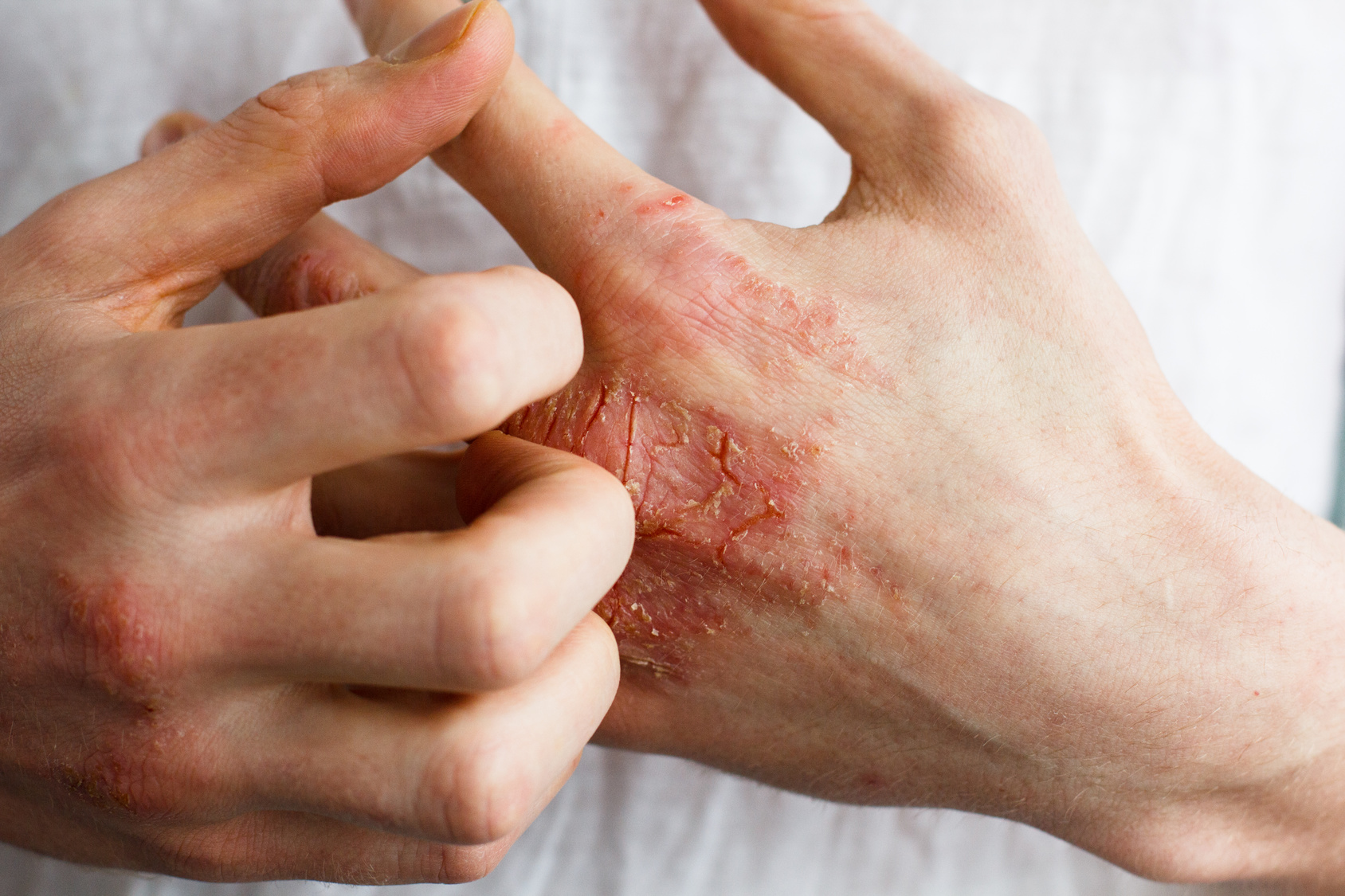According to recent statistics, approximately 40% of adults have different stages of atopic dermatitis (mostly known as eczema) in the United States. Some people outgrow this skin disease while others have it throughout their adulthood. Dermatologists still can’t explain what causes eczema in children and adults. However, they already know what triggers this condition and how to make it stop. Here is the list of common eczema triggers and recommendations on how to avoid them:
Cope with stress
Prolonged stress leads to serious health problems, including diarrhoea, high blood pressure, hardening of the arteries, heart disease and several skin problems such as eczema, acne, and psoriasis. When you have too much stress at work or personal life, your body reacts to it by increasing the production of cortisol and adrenaline. These stress hormones can suppress the human immune system and trigger an eczema flare-up at any point.
It’s impossible to avoid stress in your life. However, there are specific techniques that can help you take stress levels under control. For instance, you can start jogging, swimming or lifting weights. Consider signing up for a gym or yoga classes. It has been proven that daily physical activity reduces stress since it affects many nerve connections. Also, exercise helps to produce natural painkillers, better known as endorphins.
Try to surround yourself with friends and family. If it doesn’t help, consider making an appointment with a professional psychologist who can teach you how to manage stress on a daily basis. Meanwhile, go to the dermatologist in order to get prescription medicines such as eczema cream.
Avoid synthetic materials
Your skin might be sensitive to specific fabrics such as fleece, wool and synthetic materials. That’s why you should wear clothes that don’t irritate your skin. Consider buying clothes made of silk, micro-fibre or 100% cotton. Also, your skin might tolerate a mix of another material and cotton.
If you have some sweaters or shirts that worsen your skin disease, but you still like them, you can wear a shirt underneath – it will help you protect your skin.
Change your hygiene products
Your new shampoo, shower gel, detergent or soap can trigger eczema flare-ups. All hygiene products contain chemicals that may cause itchiness and dryness. Consider buying fragrance-free laundry detergent and shower gel. You can find special shampoos and soaps for the eczema sufferers in the local pharmacy.
Avoid sweating
Excessive sweating might be responsible for sudden flare-ups. On the other hand, it doesn’t mean you should stop doing activities that lead to sweating (jogging, playing sports, etc.). To keep your eczema under control, you need to follow specific recommendations and work out safely. For instance, every time you go to the yoga class or gym, make sure you have a clean, dry towel to wipe away your sweat.
Another important thing is to keep yourself hydrated while exercising – always have the bottle of water with you. To avoid overheating during the workout, you should stay away from the sun and take short breaks after twenty minutes of exercise.
Make sure to wear loose clothing made of cotton every time you exercise. Consider choosing low-impact workout programs in case you have an eczema flare-up at the moment. Later on, you can change your plan to a more intense one.
Re-think your diet
Consider giving up some foods in order to prevent another flare-up. Eczema sufferers should avoid eating tomatoes, citrus fruits, gluten, spices, and eggs. Your diet should include anti-inflammatory foods that can reduce the symptoms. For instance, you can eat blueberries, cherries, fatty fish, broccoli and spinach.
Also, you should start eating foods that contain probiotics and support the immune system. Here are some probiotic foods: miso soup, soft cheeses, naturally fermented pickles, kefir, sourdough bread, tempeh, and unpasteurized sauerkraut.
Avoid heat
Most eczema sufferers can’t stand the summer season because of eczema flare-ups. It has been proven that swimming and sweating, combined with prolonged exposure to the sun lead to atopic dermatitis in adults.
During the summer, moisturize your skin at least twice per day. It is recommended to stay away from the sun. However, you would still need to apply high-quality sunscreen. Consider buying it from the pharmacy since the wrong type of sunscreen may irritate your skin.
To hydrate your skin naturally, drink plenty of cold water, apply milk compresses, and creams approved by the National Eczema Association. You can always find some home remedies made out of oatmeal, honey, aloe vera juice, or avocado. Make sure to contact your dermatologist before using any home remedies.
If summer heat causes eczema flare-ups, avoid sunbathing and staying in the water longer than fifteen minutes. Every time you come out of the water, dry yourself with the clean towel and hide in the shadow.
The bottom line
In case you are an eczema sufferer, learn more about its triggers and how to avoid them. According to the dermatologists, eczema flare-ups can be caused by heat, an unhealthy diet, personal hygiene products, synthetic materials, sweating, and high-stress levels.












